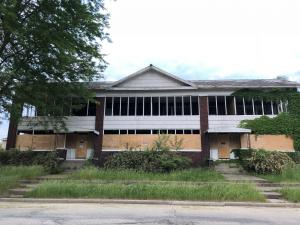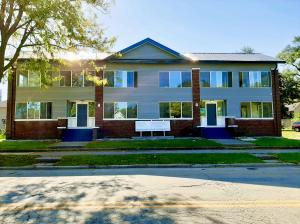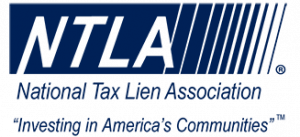Private Tax Investors Team-Up with Communities to Remedy Urban Blight and Revive Homes Slated for Demolition
The renewal projects provide property taxes to cash-strapped cities, and affordable housing to families who desperately need it in these uncertain times
GARY, INDIANA, UNITED STATES, June 21, 2024 /EINPresswire.com/ -- Research at Columbia University and the nonprofit Urban Institute revealed that millions of Americans suffer health problems related to substandard housing. But investors like Brad Norman3 of GoGo Real Estate, a member of the National Tax Lien Association1 (NTLA), are taking properties destined for demolition and giving them a new lease on life.. Then those homes can be affordably leased or sold to families, at a time when affordable homes are so scarce it has become a national crisis.
GoGo Real Estate are experienced investors who focus on buying properties at tax sale auctions where local governments attempt to recoup revenue lost due to unpaid property taxes2. That typically happens when landlords fail to pay their taxes and simply abandons the property. “We purchased a tax lien in Gary, Indiana,” Norman recalls, “it was a six-unit multifamily apartment building. It was all boarded up, the weeds around it were about seven feet high, and it was attracting illegal drug activity. But the neighbors were elderly, and it was across from a public park. I went to the tax sale and nobody else bid on it, so I bought it for $1,500. We started renovating it, and explained to the city that we wanted to take this nuisance building off the street by turning it into low-income housing.” Six months later, after Norman and his team invested close to $250,000 in the project, using local contractors, the building was totally transformed. Now it provides tenants, including single moms, with affordable housing and generates at least $3,000 a year in tax revenue for community services. “All the neighbors were coming up and shaking our hands,” Norman remembers, “and they were saying ‘Thank God someone bought this building and did something good with it.'”
Tax investors use data to quickly assess a property's type, value, location, and environmental hazards to narrow down all properties nationwide and see what is available. Norman applied this same formula to a derelict eight-unit residential structure in a nearby town. It was in such poor shape that when the city tried to auction it off with a starting bid of just $50, nobody was interested. “I went to the city and showed them my business plan,” Norman recalls, and they agreed to put the planned demolition on hold. “We spent between $350,000 and $400,000 renovating it, all of which went back into the community to pay locals like contractors. Today it produces around $8,000 a month in rental income while generating significant property tax revenue and providing really nice apartments that are fully occupied.”
Norman has completed other successful projects in a number of states, leveraging the same business model of buying the worst house in a decent neighborhood and transforming it into a valuable property. That’s a timely solution, as the U.S. Department of Housing and Urban Development estimates that more than 30 million housing units across America are in dire need of renovation, and millions of families are struggling to find adequate, affordable housing. Each of Norman’s projects helps to fund municipalities at a time when they are strapped for cash to fund such things as public education and first responder services – and he and other well-intentioned tax investors hope to replicate that success in towns and cities nationwide.
Every year thousands of properties are returned to the active (not delinquent tax rolls) in America. “Around $7 billion per year are recouped for America’s local governments from tax certificate sales,” said to Brad Westover, Executive Director of the National Tax Lien Association. “We are grateful for NTLA members like Brad Norman who turn blight into beautiful and return properties to the active tax rolls.” Investing into America’s communities by renovating properties that are vacant and abandoned is one of the many benefits of tax lien sales. In addition to funding government services, they also restore blight and reduce crime by filling homes with new homeowners and new taxpayers.
###
About the National Tax Lien Association (NTLA)
The National Tax Lien Association (NTLA) is the leading nonprofit organization representing the tax lien industry. Founded in 1997, the NTLA is dedicated to promoting transparency, education, and best practices in tax lien investing. The association provides resources, networking opportunities, and advocacy for its members, comprising tax lien investors, government agencies, and service providers. Helping Government, Fighting Blight, & Building Stronger Communities.
All media requests can be submitted here: https://www.ntla.org/public-relations/
Brad Westover
National Tax Lien Association (NTLA)
+1 561-449-2484
info@ntla.org
Visit us on social media:
Facebook
X
LinkedIn
Instagram
YouTube
1 https://www.ntla.org/
2 https://www.ntla.org/market-research/
3 https://www.linkedin.com/in/brad-norman-2a03899



